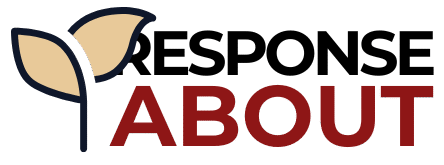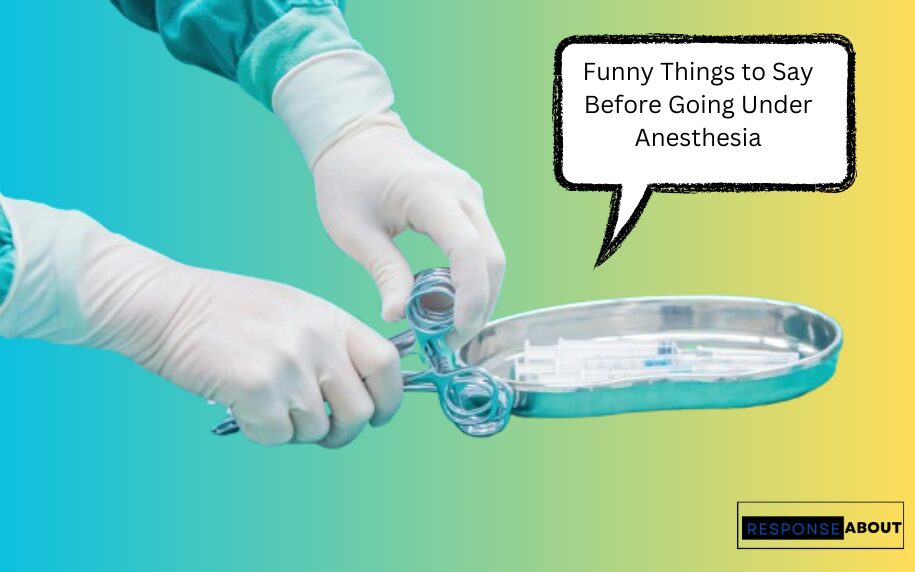Anesthesia can be a nerve-wracking experience for many people. The idea of being unconscious during a medical procedure often causes anxiety and stress. But what if you could turn that nervous energy into laughter?
In this article, we’ll explore 45 hilarious things you can say before going under anesthesia. These witty remarks, clever puns, and pop culture references are designed to lighten the mood and help you face your procedure with a smile. Whether you’re a natural jokester or just looking for a way to calm your nerves, you’ll find something here to tickle your funny bone.
So, let’s dive in and discover how a little humor can go a long way in making your medical experience more enjoyable. After all, laughter might just be the best medicine before the real medicine kicks in!
Why Use Humor Before Anesthesia?
Before we dive into the jokes, let’s briefly discuss why using humor in this situation can be beneficial:
- Stress reduction: Laughter can help lower cortisol levels, reducing stress and anxiety.
- Mood improvement: Humor can release endorphins, improving your overall mood.
- Connection with medical staff: Sharing a laugh can help you build rapport with your doctors and nurses.
- Distraction: Focusing on humor can take your mind off the upcoming procedure.
Now, let’s get to the funny stuff!
Funny One-Liners
“I hope you have a good playlist lined up for this procedure.”
This joke implies that the patient hopes the medical staff has good music taste to keep them entertained during the procedure.
“Is this where I sign up for frequent flier miles?”
This one-liner jokingly compares the hospital to an airline, suggesting that the patient should earn rewards for their frequent visits.
“I’ve always wanted to be part of a science experiment.”
This humorous statement implies that the patient sees the medical procedure as a science experiment, making light of the situation.
“Will I still be able to play the piano after this? I couldn’t before, but you never know.”
This joke plays on the common concern about losing abilities after surgery, but adds a twist by revealing that the patient couldn’t play the piano in the first place.
“I hope you’ve had your coffee this morning, doc.”
This lighthearted remark expresses the patient’s desire for the doctor to be alert and well-caffeinated before the procedure.
“I brought my own anesthesia, but I’ll let you use yours if you insist.”
This joke pretends that the patient has brought their own anesthesia, playfully undermining the medical staff’s expertise.
“I’m ready for my close-up, Mr. DeMille.”
This famous line from the movie “Sunset Boulevard” is used to humorously compare the medical procedure to a Hollywood production.
“I hope this doesn’t interfere with my plans to run a marathon tomorrow.”
This joke exaggerates the patient’s post-surgery plans, making light of the recovery process.
“I’m just here for the free drugs.”
This humorous statement jokingly implies that the patient’s main motivation for the procedure is to get free drugs, rather than to improve their health.
“I’ve always wanted to be a superhero. Maybe this is my origin story.”
This joke compares the medical procedure to a superhero’s origin story, suggesting that the patient might gain special powers as a result.
“Wake me up when September ends.”
A reference to the Green Day song, implying the patient plans to sleep for a long time.
“I’m not afraid of anesthesia, I’m afraid of the hospital bill.”
This joke touches on the common concern about healthcare costs in a lighthearted way.
“Is this the express lane to dreamland?”
Comparing the anesthesia process to a fast track to sleep.
“I hope you’re better at this than my hairdresser.”
A playful jab comparing the medical procedure to a haircut.
“Can we do a practice run first?”
Jokingly suggesting a rehearsal for the anesthesia process.
Jokes and Puns
“What do you call a bear with no teeth? A gummy bear!”
This simple joke about a toothless bear is a lighthearted way to ease the tension before the procedure.
“Why did the tomato turn red? Because it saw the salad dressing!”
This silly pun about a blushing tomato is another way to inject humor into the situation.
“What do you call cheese that isn’t yours? Nacho cheese!”
This cheesy pun is a playful way to distract from the seriousness of the medical procedure.
“Did you hear about the Italian chef who died? He pasta way.”
This pun about an Italian chef’s death is a darkly humorous way to talk about mortality before surgery.
“I used to be addicted to soap, but I’m clean now.”
This joke about overcoming a soap addiction is a clever play on words that can help lighten the mood.
“What do you call a fake noodle? An impasta!”
This pun about a fake noodle is another silly joke to make the patient and medical staff smile.
“I told my wife she was drawing her eyebrows too high. She looked surprised.”
This joke about a wife’s surprised expression is a fun way to break the ice before the procedure.
“I’m on a seafood diet. I see food, and I eat it.”
This joke about a seafood diet is a lighthearted way to talk about food and eating before the surgery.
“What do you call a fish wearing a bowtie? So-fish-ticated!”
This pun about a sophisticated fish is another playful way to ease the tension in the room.
“I tried to catch some fog earlier. I mist.”
This joke about trying to catch fog is a clever play on words that can help distract from pre-surgery nerves.
“Why don’t scientists trust atoms? Because they make up everything!”
A science-themed pun that might appeal to the medical staff.
“What’s the best way to watch a fly fishing tournament? Live stream!”
A play on words that combines technology and fishing.
“Why did the scarecrow win an award? He was outstanding in his field!”
A classic pun that might elicit a groan and a smile.
“What do you call a parade of rabbits hopping backwards? A receding hare-line!”
A silly pun that combines rabbits and hair loss.
“Why don’t eggs tell jokes? They’d crack each other up!”
A simple, lighthearted joke about eggs and laughter.
Pop Culture References
“Beam me up, Scotty!”
This famous line from the TV series “Star Trek” is used to humorously compare the medical procedure to a sci-fi teleportation.
“I’ll be back.” (in your best Arnold Schwarzenegger voice)
This iconic line from the movie “The Terminator” is a playful way to express the patient’s determination to survive the surgery.
“To infinity and beyond!”
This catchphrase from the character Buzz Lightyear in the “Toy Story” movies is a fun way to express the patient’s readiness for the procedure.
“I’m ready to enter The Matrix.”
This reference to the movie “The Matrix” jokingly compares the medical procedure to entering a simulated reality.
“I hope I don’t wake up in Jurassic Park.”
This joke about waking up in the dinosaur-filled world of the “Jurassic Park” movies is a playful way to express the patient’s fears.
“I’m ready for my Hogwarts letter now.”
This reference to the “Harry Potter” book series jokingly suggests that the patient is ready for a magical journey after the surgery.
“May the Force be with you.”
This famous line from the “Star Wars” movies is used to humorously wish the medical staff good luck during the procedure.
“I solemnly swear that I am up to no good.”
This quote from the “Harry Potter” series is a mischievous way to express the patient’s playful attitude before the surgery.
“I’m ready to join the Avengers now.”
This joke about joining the superhero team from the Marvel movies is a fun way to express the patient’s readiness for the procedure.
“I hope I wake up in Narnia.”
This reference to the magical world from “The Chronicles of Narnia” book series is a lighthearted way to express the patient’s hopes for a positive outcome.
“Is this the Krusty Krab? No, this is Patrick!”
A reference to a popular SpongeBob SquarePants meme, adding some animated humor to the situation.
“I volunteer as tribute!”
Quoting “The Hunger Games” to humorously compare the medical procedure to a high-stakes competition.
“Winter is coming.”
A “Game of Thrones” reference that could be particularly funny if the operating room is cold.
“I feel the need… the need for speed!”
Quoting “Top Gun” to express excitement about the fast-acting nature of anesthesia.
“I’m not sleeping, I’m just checking my eyelids for holes.”
A classic dad joke that plays on the idea of falling asleep under anesthesia.
Tips for Using Humor Before Anesthesia
While these jokes can be a great way to lighten the mood, it’s important to remember a few key points:
- Read the room: Make sure your humor is appropriate for the situation and the people around you.
- Timing is key: Choose the right moment to crack a joke, ideally when the medical staff seems receptive.
- Keep it clean: Avoid offensive or overly crude humor in a medical setting.
- Don’t overdo it: A few well-timed jokes are better than trying to turn your procedure into a stand-up routine.
- Be yourself: Choose jokes that fit your personality and sense of humor.
The Benefits of Laughter in Medical Settings
Research has shown that laughter and humor can have significant benefits in medical settings:
- Stress reduction: Laughter can lower cortisol levels and reduce stress hormones in the body.
- Pain management: Humor can increase pain tolerance and distract from discomfort.
- Immune system boost: Regular laughter may improve immune function.
- Improved mood: Humor can help combat feelings of anxiety and depression associated with medical procedures.
- Better doctor-patient relationships: Shared laughter can improve communication and trust between patients and medical staff.
When Humor Might Not Be Appropriate?
While humor can be a great tool for easing tension, there are times when it might not be the best approach:
- Emergencies: In urgent medical scenarios, it’s best to focus on the task at hand.
- When others are visibly stressed: If your medical team seems particularly tense or focused, it might be best to save the jokes for later.
- If you’re extremely anxious: Sometimes, severe anxiety might make it difficult to engage in humor. In these cases, it’s okay to express your concerns seriously.
- Cultural or language barriers: Be mindful that humor doesn’t always translate well across cultures or languages.
Alternatives to Verbal Humor
If you’re not comfortable telling jokes or if the situation doesn’t allow for it, there are other ways to bring lightness to the moment:
- Wear funny socks or a humorous t-shirt under your hospital gown.
- Bring a small, funny prop like a rubber chicken or a novelty pen.
- Share a funny meme or comic with your medical team before the procedure.
- Write a humorous note to yourself to be read post-surgery.
Conclusion
Using humor before going under anesthesia can be an effective way to reduce anxiety, build rapport with your medical team, and create a positive atmosphere. The 45 funny things to say listed in this article provide a wide range of options, from simple one-liners to pop culture references, ensuring that there’s something for everyone’s sense of humor.
Remember, the goal is not to become a stand-up comedian in the operating room, but rather to find a moment of levity in what can be a stressful situation. By approaching your medical procedure with a sense of humor, you may find that you feel more relaxed and confident.
Ultimately, the best thing to say before going under anesthesia is whatever makes you feel most comfortable. Whether that’s a clever joke, a heartfelt statement to your loved ones, or simply a deep breath, trust that your medical team is there to support you every step of the way.
So, the next time you’re facing anesthesia, consider cracking a joke or two to lighten the mood. Who knows, you might just wake up with a new reputation as the funniest patient in the hospital!


